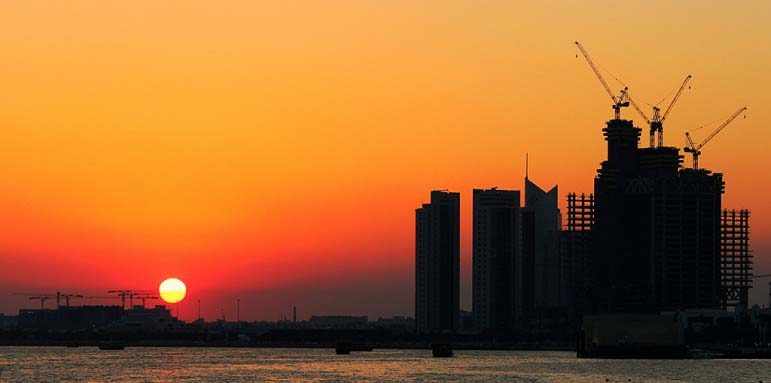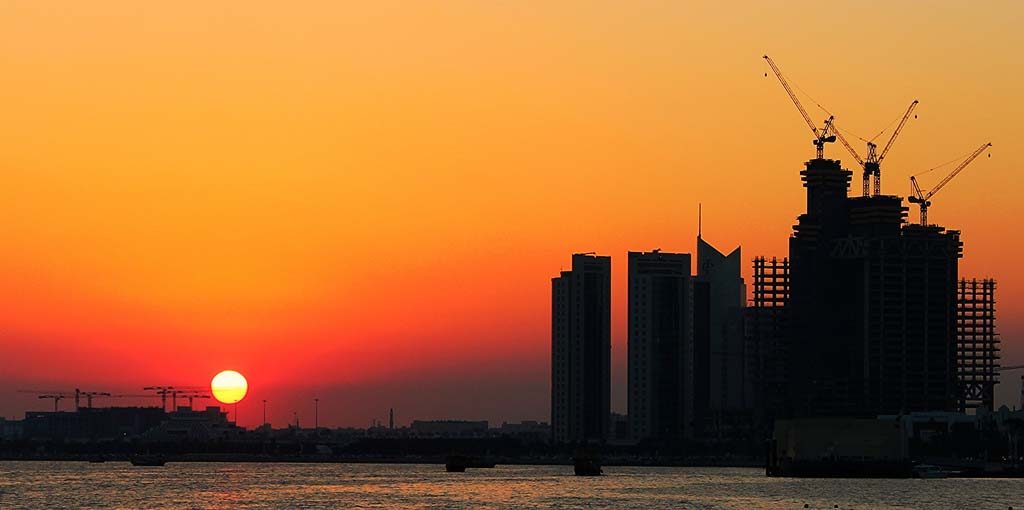
The first budget approved by Emir Sheikh Tamim bin Hamad Al Thani will hike spending to an all-time high by increasing compensation for government employees and ramping up construction ahead of the 2022 World Cup.
According to state news agency QNA, Qatar plans to spend nearly $60 billion (QR218.4 billion) while bringing in revenues of $62 billion (QR225.7 billion).
The 2014-2015 financial plan also includes a promise to construct 85 new schools over the next year and a half.
The move should mitigate the strain on Qatar’s overburdened education system, which is struggling to keep up with the country’s rapid population growth and is hindering some companies in recruitment of expat workers.
Previously, the Public Works Authority (Ashghal) pledged to build 44 new schools and kindergartens over the next couple of years, including 29 schools and 15 kindergartens by the end of 2014.
The promise of new schools is one of the few specific details contained in QNA’s otherwise high-level summary of the budget, which says expenditures are projected to rise 3.7 percent.
As in past years, revenues figures are projected based on conservative oil prices. This year’s budget assumes oil will trade for $65 a barrel, even though the current price is more than $100.
The budget summary makes several references to controlling inflation – a priority of the Emir – through coordinated monetary and fiscal policy as well as increasing “the efficiency of government spending.”
“Any expansion in spending must be accompanied by a proactive management in order to avoid any pressure from inflation,” Finance Minister Ali Sharif Al Emadi said in the budget summary.
Major projects
While the climbing costs of consumer goods and home rentals are a common complaint among many residents, inflation is also a major concern for construction companies and government officials overseeing the country’s massive building boom.
Earlier this month, the International Monetary Fund noted that Qatar has already experienced delays and cost overruns related to its infrastructure projects, and “will continue facing the risk of cost escalation given its commitment to a compressed timetable ahead of the 2022 (World Cup) championship.”
The IMF recommended government planners to prioritize certain initiatives over others, or construct projects more gradually.
Meanwhile, Reuters recently reported that labor shortages, bureaucratic delays and rising costs were prompting Qatar officials to reschedule 15 percent of its development projects – particularly those not directly tied to the 2022 World Cup – in the coming years.
The 2014-15 budget nevertheless calls for a 16.8 percent increase to QR87.5 billion ($24.03 billion) in spending on major projects, “enough funds for … the execution of mega infrastructure and transport projects such as the rail projects related to the preparation for hosting the 2022 World Cup,” Al Emadi stated.
Here’s the breakdown of the three major sectors in the budget, which account for 54 percent of spending:
- Infrastructure and transport costs will jump 21.94 percent to QR75.6 billion ($20.76 billion);
- Education spending will rise 7.35 percent to QR26.3 billion ($7.22 billion); and
- Health care costs will go up 12.14 percent to QR15.7 billion ($4.31 billion).
Earlier in the day, Ibteihaj al-Ahmadani – the head of the Health Committee at the Qatar Chamber – said the country would spend more than QR4 billion ($1.1 billion) over the next five years to build and equip hospitals and medical cities, according to The Gulf Times.
Government costs
According to the Peninsula, the budget has increased allocations to provide housing for Qataris by 18 percent to nearly $1 billion (QR3.3 billion). The newspaper states that the money would be used to finish 3,700 housing units under construction and to build 2,300 new homes for 6,000 nationals, “ensuring that there is no waiting list for housing.”
The compensation bill for government employees is also forecast to go up – by some 7.3 percent to QR47.5 billion ($13.04 billion), nearly double the QR25.2 billion ($6.92 billion) spent on wages and salaries three years ago.
It was not stated whether the increase would be due to salary hikes or simply to accommodate growth in the size of the civil service. However, governments across the Gulf have in recent years increased salaries in the public sector, which is predominantly comprised of the local (not expat) populace.
A salary increase in the public sector here would not be unprecedented. As Deputy Emir in 2011, Sheikh Tamim issued an order to raise wages for all nationals in government jobs by 60 percent – an $8 billion outlay. He also increased pay in the judiciary by 120 percent last August.
Apart from the salaries of civil servants, Qatar’s 2014-15 budget proposes to reduce the cost of government. Current expenditures are forecast to drop 8.2 percent to QR71.2 billion ($19.55 billion) while capital expenditures are expected to decline 12.1 percent to QR12.3 billion ($3.38 billion).
At the same time, officials want private businesses to do more of the work traditionally performed by the government.
Al Emadi said he wants to avoid competition between the public and private sector as well as award more projects to businesses. He’s also encouraging “ministries and different government bodies to give supporting business and services to the private sector.”
Thoughts?







